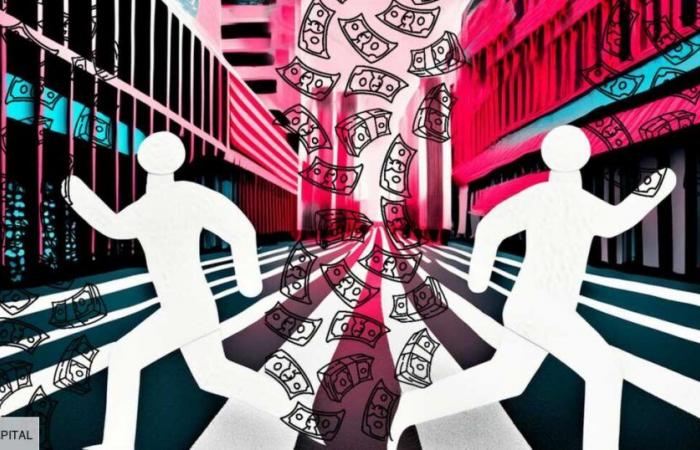Capital Video: Life insurance, current account: can your money be blocked in the event of a “bank run”?
© Capital
– What are the bank guarantees in the event of my bank going bankrupt?
A disaster scenario in sight? On Tuesday, December 2, the Prime Minister, Michel Barnier, announced that he would use article 49-3 of the Constitution to “pass” the Social Security budget. (PLFSS). In the process, two motions of censure were tabled, which could bring down the government, barely three months after it was established. The period of political instability, which began with the dissolution of the National Assembly on June 9, therefore continues, and with it the impossibility of passing the 2025 budget.
However, these uncertainties are potentially flammable for France's ability to finance itself on the financial markets. And even more so if we add the current state of the public deficit – 6.1% of GDP in 2024, or double the limit set by the European treaties – and the recent downgrading of the French debt rating by the Standard and Poor's rating agency. However, in the event that France no longer manages to find buyers for its debt, savers could fear a collapse of the financial system and the bankruptcy of their bank. A fear that could create a bank panic («bank run») : a rush of French people towards the counters to recover their savings.
Withdrawals from current accounts and life insurance may well be restricted
But then, if panic sets in, causing massive withdrawals, what would happen? In France, it is the Prudential Control and Resolution Authority (ACPR) which is responsible for supervising the banking sector and “preserving the stability of the financial system”, recalls the Banque de France website. To this end, the Authority has the power to impose restrictive measures on banks, such as “limit or temporarily prohibit the exercise of certain operations”, such as withdrawals from current accountsindicates article L612-33 of the Monetary and Financial Code.
A scenario never before seen in France, but not in Europe: in the wake of the sovereign debt crisis, daily withdrawal ceilings were put in place in Cyprus in 2013 and in Greece in 2015. “These measures remain extremely rare and always limited in timespecifies Philippe Crevel, economist and president of the Circle of Savings. Furthermore, this is not a seizure of individuals' savings, but simply a precautionary measure to avoid the bankruptcy of the banks concerned if all their customers were to withdraw their savings at once.”
In France, this blocking of withdrawals can also be decided for life insurance, and this since 2016, with the adoption of the Sapin 2 law of December 9, 2016. This law provides that in the event of systemic risk, the High financial stability council (HCSF) – another institution dependent on the Banque de France and the ACPR – can take precautionary measures, including the freezing of life insurance contracts for a renewable period of three months.
In the event of bankruptcy, guarantee funds protect your capital up to a certain amount
Legally, freezing withdrawals is therefore possible on current and life insurance accounts, which hold the vast majority of French people's savings. But this is in order to avoid the bankruptcy of the establishments concerned. However, it should be remembered that even if bankruptcy occurs, savers would be covered up to a certain amount. For their current accounts, regulated savings accounts (Livret A, LEP, LDDS) and bank accounts, the Deposit Guarantee and Resolution Fund (FGDR) can reimburse savers up to 100,000 eurosfor each account opened in an establishment. For life insurance, it is the Personal Insurance Guarantee Fund (FGAP), which covers subscribers up to 70,000 euros.
Budget 2025: is France on the verge of becoming Greece?






